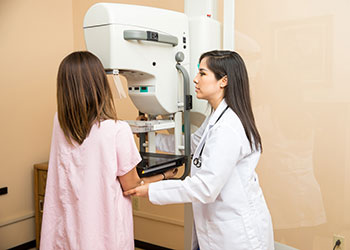
Breast cancer represents more than one quarter of new cancers diagnosed in Canadian women, with an estimated 25,000 new cases diagnosed in 2015.
Breast cancer screening is offered to women in target age groups to detect tumours early and reduce cancer mortality. In order for a screening program to be cost-effective and to impact cancer mortality rates, programs need to attract women of eligible age, retain them and maintain high participation rates. Target participation for BC is currently 70% however, recent Screening Mammography Program of BC Annual Reports have estimated the return rate for first-time screeners to be approximately 45% at 30-months.
Data access has been approved and analysis has begun, for a project to find out which groups of women in BC are in need of interventions to improve uptake of screening. University of British Columbia (UBC) PhD candidate, Ryan Woods, is conducting the study under the supervision of UBC School of Population and Public Health Professor John Spinelli.
The study is examining the extent to which immigrant subpopulations participate and are retained in screening programs, and the impact that a deficit in participation by these groups has on overall provincial and regional screening rates. Primary care practice styles and physician characteristics are also being studied, to see how they may contribute to variations in screening rates. This project is also examining how breast cancer risk varies across sub-populations and whether cancer stage at diagnosis differs among immigrant and non-immigrant women in BC.
For the project PopData linked data from the BC Ministry of Health, the BC Vital Statistics Agency, Statistics Canada, Citizenship and Immigration Canada, and the BC Cancer Registry with Screening Mammography Program of BC data and College of Physicians and Surgeons of British Columbia Practitioner file data.
The project is funded by the Canadian Institutes of Health Research and the BC Cancer Agency.